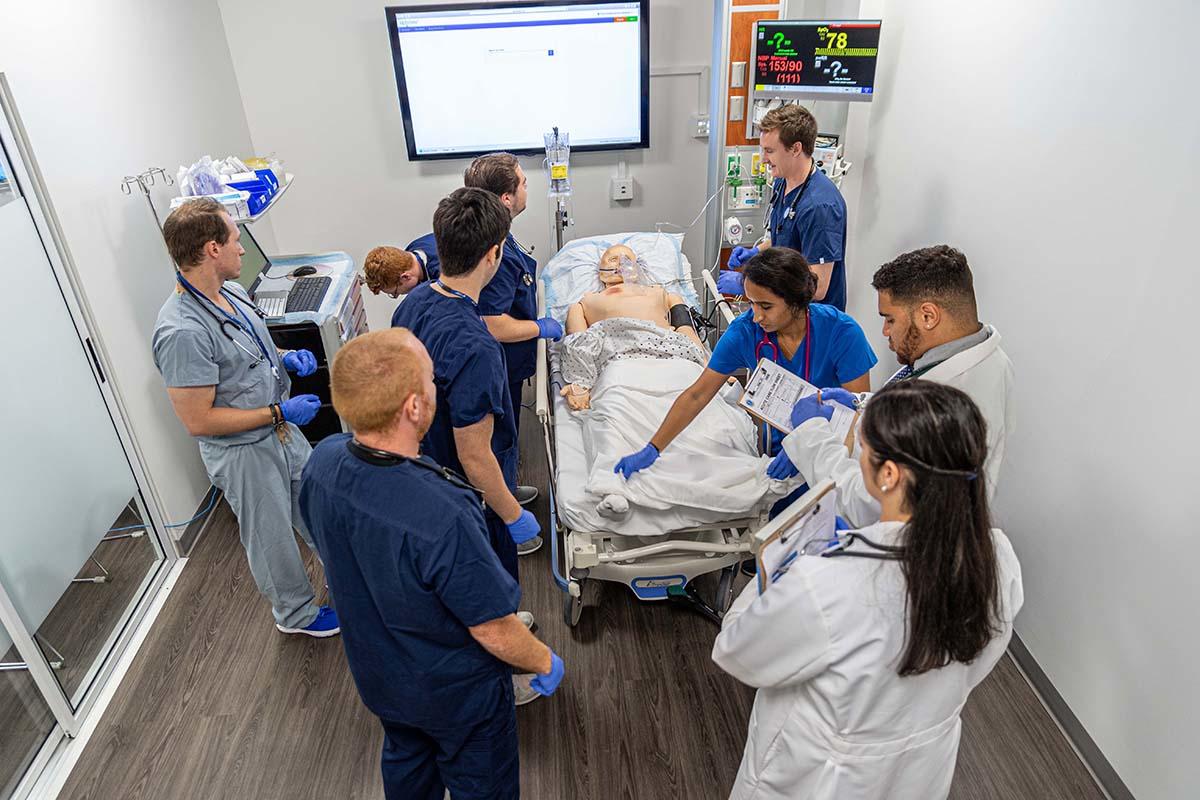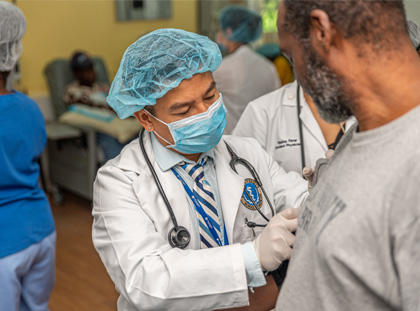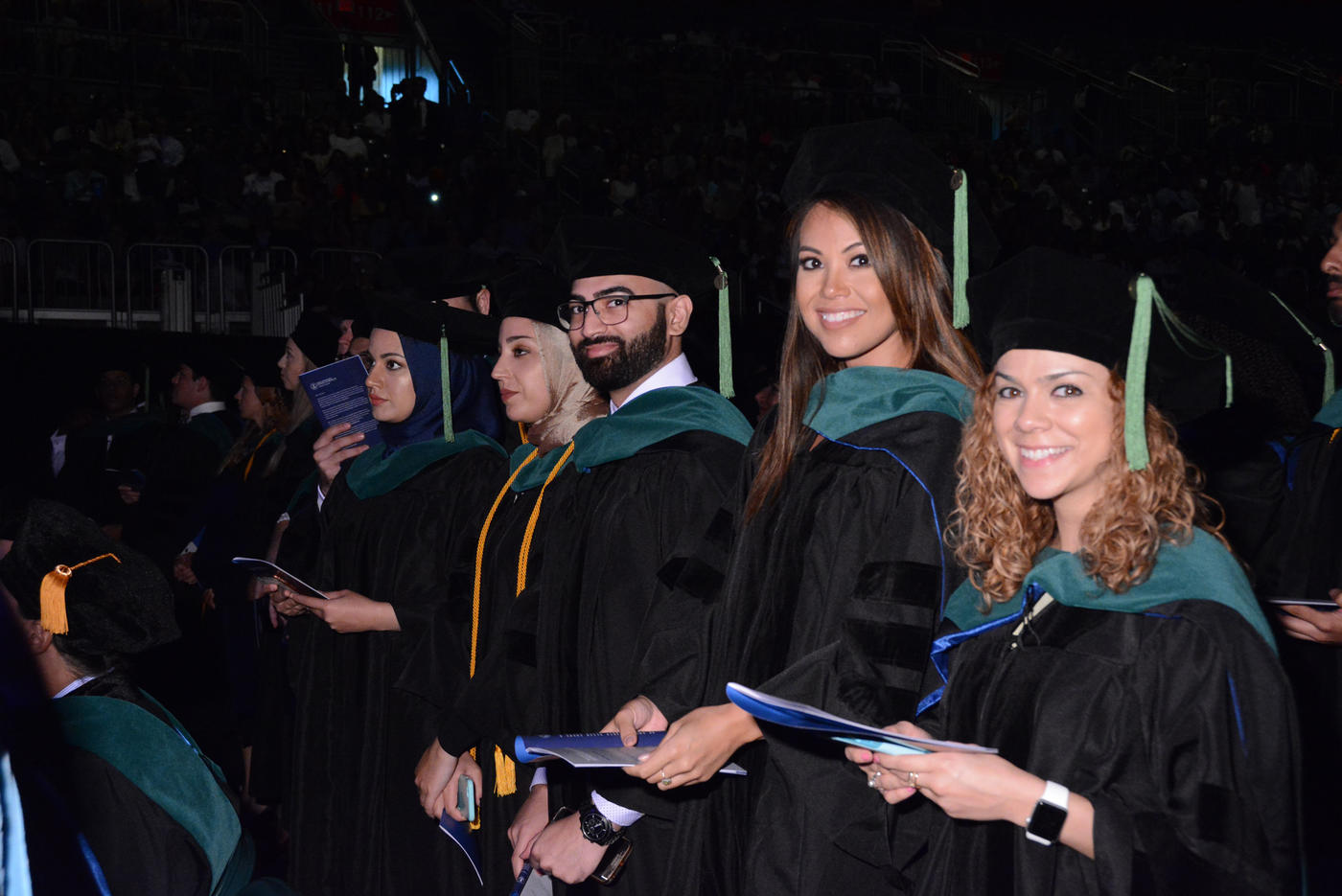You are interested in becoming a doctor. You want to make a career out of caring for people by treating disease, managing their health and well-being, and helping to improve their lives.
Some doctors, known as specialists, specialize in treating a specific ailment or part of the body. If you would rather treat a variety of issues, you might consider becoming a general practitioner (GP).
Before applying to an accredited medical school such as Ross University School of Medicine (Ross Med),* take some time to think about your interests, the skills you would like to learn, and the kinds of patients you would like to treat. There are numerous disciplines of general practice, and you’re bound to find one that meets your personal and professional goals.
What Is a General Practitioner?
Doctors who do not specialize in a particular field of medicine are known as general practitioners or general practice doctors. These versatile and widely skilled physicians are qualified to treat many different medical issues. As first points of contact — primary care physicians — general practitioners also identify problems that may require a specialist or other advanced treatment.
Skills and Qualities of a Successful GP
Communication skills are key for general practitioners. They must be able to communicate a wide range of medical understanding with other healthcare professionals to ensure that patients receive all relevant and correct treatments. They should also be able to discuss conditions and procedures with patients, families, and caregivers. Successful GPs should also have:
- Clinical competence: The ability to carry out professional functions effectively and use medical skills, knowledge, and reasoning in a clinical setting
- Empathy and compassion: Personalized care and an understanding of how patients may feel — both physically and emotionally
- Problem-solving abilities: The ability to define a medical problem and then determine a solution
Types of General Practitioners
Family Medicine
Family medicine doctors care for patients of all ages — they can treat infants, adolescents, their parents, and their grandparents. Family practitioners are primary care physicians because they are often the first doctor a patient will come to with a medical concern. Many patients visit family physicians for annual checkups, and these doctors can get a good overall picture of a patient’s health as the patient visits the doctor over the course of time.
Internal Medicine
Internists, or internal medicine physicians, are another kind of general practitioner. Internists are similar to family practitioners, but they only treat adults (people aged 18 and older) instead of treating people of all ages as family practitioners do. In addition, internists may not provide health services specific to women. Like family doctors, internists are usually considered primary care physicians. They may be the first doctor a patient sees for such common medical issues as a cough, a cold, or a rash.
Geriatric, Pediatric, and Hospital Medicine
General practice doctors who focus on treatment of the elderly are known as gerontologists. These doctors practice geriatric medicine, diagnosing and treating conditions associated with age. On the other end of the spectrum are pediatricians. These general practitioners focus on treating infants, children, and adolescents. Another discipline of general practice is hospital medicine, where physicians are known as hospitalists. Hospitalists treat patients who have been hospitalized due to disease, an accident, or other causes.
General Practitioner Education
Now you should have a good idea of the different disciplines of general practice. But what kind of education does it take to get there? All general practice doctors have similar educational backgrounds, but they differ in their specific qualifications and certifications.
Most medical disciplines begin with an undergraduate degree focused on such hard sciences as biology, chemistry, or physics. Many people wishing to become doctors participate in pre-med programs as undergraduates, and they often do a lot of extracurricular activities to gain medical experience. Before being accepted to a medical school such as Ross Med, students must score well on the Medical College Admission Test® (MCAT®). This examination evaluates a student’s readiness to attend medical school.
Before medical students can become licensed general practitioners, they must earn either a Doctor of Medicine (MD) or Doctor of Osteopathy (DO) degree, and they must then complete at least three years of medical residency. Residency involves intense practical education and clinical training under the supervision of licensed physicians.
Learn more about residencies attained by RUSM graduates here.
Different general practice disciplines require different focuses in coursework and residency, and all doctors have the option to pass board examinations specific to their field. A board examination evaluates a prospective doctor’s clinical knowledge, medical understanding, and diagnostic ability. Each board is an independent organization tasked with certifying physicians in a specific field of medicine. The American Board of Physician Specialties® provides a wealth of information about board exams in many different medical disciplines.
Family doctors must complete a residency that includes clinical rotations in multiple areas — such as emergency medicine, general surgery, hospital care, obstetrics, and pediatrics — so that they are prepared to care for patients of any age with a multitude of medical concerns. The American Board of Family Medicine® (ABFM) is one of the organizations that offers board exams to certify family doctors.
Internists complete their residencies in internal medicine. Their residencies do not include rotations in obstetric or pediatric care, because internists are not specialists in health issues specific to women or children. Internists train in clinics and hospitals. A board such as the American Board of Internal Medicine® (ABIM) certified internists.
Pediatricians may become residents in pediatric wards, children’s hospitals, or other organizations that focus on the health and well-being of infants and children. The American Board of Pediatrics® certifies pediatricians.
Gerontologists typically complete a residency in internal or family medicine and then apply to a geriatrics fellowship program. Such fellowship programs provide doctors-in-training with additional clinical experience specific to the field of gerontology. A fellowship program may also require a larger focus on research than many other doctor training programs. Organizations such as the ABFM and ABIM certify gerontologists.
GP Duties and Responsibilities
General practitioners care for patients and cover all aspects of their particular field. Each type of GP has its own responsibilities, but all GPs have such similar duties as:
- Diagnosing and treating common illnesses
- Preventive care and health promotion
- Referring patients to specialists when necessary
- Managing chronic conditions
Challenges and Rewards of Being a GP
General practitioners are challenged daily by the broad spectrum of their particular fields. Each day, they may set a simple fracture, diagnose a complicated illness, care for a baby or an elderly person, or refer patients to skilled specialists. Challenges and rewards may be viewed as one and the same, and they may include:
- Long hours and high patient volume
- Emotional demands of patient care
- Fulfillment in building long-term patient relationships
- Contribution to community health
GP Career Opportunities and Advancement
General practitioners are needed in all areas and across all spectrums of society. GPs practice in busy city hospitals and in small-town clinics and offices. They may work in the countryside or in such remote areas as deserts, islands, or forested wilderness — anywhere there are people.
GPs may work independently, in group practice, or as part of a specialized team. They may serve in the military, teach at universities, or do research or public relations. GPs are also often administrators or consultants. Because their fields are “general,” their clinical skills can be applied almost anywhere.
Take the Next Step
You now know what the different general practitioner disciplines are, and how the training differs between those types of physician paths. You also know that general practitioners are needed wherever people live.
If being a GP appeals to you, check out the MD program at Ross Med and see what the school is all about. Our 2023–2024 MD graduates achieved a 97% first-time residency attainment rate,† and 65% of them matched into primary care. Learn more about Ross Med’s requirements for admission as well as the island of Barbados that Ross Med calls home. And when you’re ready, apply to Ross Med today!
†First-time residency attainment rate is the percentage of students attaining a 2024–25 residency position out of all graduates or expected graduates in 2023–24 who were active applicants in the 2024 NRMP match or who attained a residency position outside the NRMP match.
Related resources:
*Ross University School of Medicine is accredited by the Caribbean Accreditation Authority for Education in Medicine and other Health Professions (CAAM-HP, www.caam-hp.org).
CAAM-HP is the legally constituted body established in 2003 under the aegis of the Caribbean Community (CARICOM), empowered to determine and prescribe standards and to accredit programs of medical, dental, veterinary and other health professions education on behalf of the contracting parties in CARICOM.
Accreditation by CAAM-HP is a rigorous, peer review process which examines all aspects of a medical program. The CAAM-HP board, an independent and autonomous body of professionals, only certifies medical schools which are operating at the highest levels of industry standards.
Through this accreditation, the CAAM-HP provides assurance to medical students, graduates, the medical profession, healthcare institutions and the public that programs leading to qualifications in medicine meet appropriate national and international standards for educational quality, and that the graduates have a sufficiently complete and valid educational experience.




